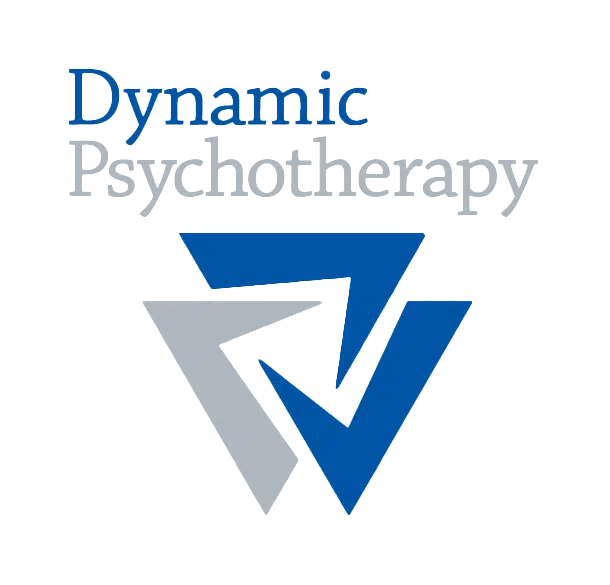EFT Therapy Melbourne: Reconnecting Relationships & Improving Communication

Emotionally Focused Therapy in Melbourne
Life in Melbourne is vibrant and full of opportunities, but amid the hustle and bustle, our relationships can sometimes get sidelined. Have you ever felt disconnected from your partner or family member, even when you’re together? You’re not alone. Many of us struggle to maintain deep emotional connections while juggling work, social commitments, and personal challenges.
That’s where Emotionally Focused Therapy (EFT) comes in. More than just a therapeutic approach, EFT is a pathway to understanding and strengthening the emotional bonds that hold our relationships together. By focusing on our attachment needs and how we connect with others, EFT helps us navigate complex emotions and fosters healthier, more fulfilling relationships.
In this article we explore how Emotionally Focused Therapy works, why it’s so effective, and how it can make a real difference in your life. If you’re ready to enhance your relationships and reconnect on a deeper level, read on to discover how EFT can help you forge stronger emotional connections.
Book Now or Learn More
Submit an intake form below or keep reading for a detailed overview of Emotionally Focused Therapy.
What Is Emotionally Focused Therapy?
Emotionally Focused Therapy (EFT) is a highly effective, evidence-based approach to psychotherapy that focuses on adult relationships and emotional bonds. Developed in the 1980s by Dr. Sue Johnson and Dr. Les Greenberg, EFT helps individuals, couples, and families strengthen their emotional connections and navigate relational challenges.
At its core, EFT is based on the understanding that humans are inherently relational beings with a deep need for secure emotional bonds. It draws heavily from attachment theory, which suggests that our early relationships shape how we connect with others in adulthood. By recognizing these patterns, EFT helps you understand your emotional needs and how you seek fulfillment.
How Emotionally Focused Therapy Works
EFT typically progresses through three stages:
- De-escalation of Negative Cycles: You’ll work with your therapist to identify and understand the negative interaction patterns causing distress. This awareness reduces blame and fosters a collaborative environment for change.
- Restructuring Interactions: You’ll be guided to express deeper emotions and attachment needs. This openness allows partners or family members to respond with empathy, creating new, positive interaction patterns.
- Consolidation and Integration: You’ll reinforce healthier interaction patterns and develop strategies to maintain these changes outside of therapy.
The Effectiveness of Emotionally Focused Therapy
You might be wondering: “Does Emotionally Focused Therapy really work?” The answer is a resounding yes—and there’s plenty of evidence to back it up.
Backed by Research
Over the past few decades, EFT has been extensively studied. Research consistently shows that about 70-75% of couples move from distress to recovery after participating in EFT, with approximately 90% showing significant improvements in their relationships. These aren’t just numbers; they’re real people whose lives have been positively transformed.1
EFT’s success isn’t limited to couples—families and individuals have also benefited immensely from its principles. Professional bodies and psychological associations worldwide endorse EFT for its evidence-based methods and lasting results.
Why Emotionally Focused Therapy Works
EFT is effective because it focuses on emotions at their core. By identifying and reshaping negative interaction patterns, EFT helps individuals and couples create stronger, more secure bonds. Therapists provide a non-judgmental environment where you can express your deepest feelings without fear. You’ll learn to recognize and articulate your emotions, understand the cycles that lead to conflict, and work together to build secure attachments.
Who Can Benefit from Emotionally Focused Therapy?
One of the wonderful things about EFT is its versatility and effectiveness across a broad spectrum of people and relationship dynamics.
Couples Wanting to Reconnect
Every relationship faces ups and downs. If you and your partner find yourselves stuck in negative patterns, feeling distant, or struggling with trust issues, EFT can help you rebuild trust, improve communication, and break unhelpful interaction cycles.
Families Seeking Harmony
Family relationships can be complex. EFT can be a valuable tool for families aiming to strengthen their bonds and navigate conflicts by enhancing family dynamics, resolving long-standing issues, and building a supportive environment.
Individuals on a Journey of Personal Growth
Even if you’re not currently in a relationship or facing family challenges, EFT can offer significant benefits. It helps you understand your emotional patterns, learn strategies to manage intense emotions, and boost self-esteem.
People Navigating Life Transitions
Life changes can strain our relationships and emotional well-being. EFT can help you cope with change, strengthen support systems, and find balance during times of uncertainty.
Those Facing Emotional Challenges
If you’re dealing with depression, anxiety, or other emotional difficulties, EFT can be a complementary approach alongside other treatments, addressing root causes and enhancing relationships.
The Emotionally Focused Therapy Process
What to Expect from EFT Therapy
Starting Emotionally Focused Therapy might feel like stepping into the unknown, but understanding the process can make it a rewarding journey toward deeper connections and personal growth.
1. Building Trust
Your journey begins with an initial session where you can share your story in a safe, non-judgmental space. Whether in-person or via Telehealth, your therapist will create a welcoming environment. Together, you’ll discuss what’s bringing you to therapy and set goals for your journey ahead.
2. Exploring Emotions and Patterns
You’ll delve into the emotions that drive your interactions and identify patterns that lead to misunderstandings or conflicts. By seeing these cycles clearly, you begin to understand your own experiences and those of your partner or family members.
3. Reshaping Interactions
This phase is about transformation. You’ll practice communicating your feelings openly, develop empathy, and create positive patterns of interaction.
4. Strengthening Bonds
As new patterns solidify, your relationships strengthen. Trust grows, emotional intimacy deepens, and you celebrate the progress you’ve made.
5. Consolidation and Future Planning
In the final stage, you’ll focus on maintaining progress and preparing for the future. You’ll develop strategies to handle challenges independently and embrace ongoing growth.
Flexibility to Suit Your Needs
Everyone’s journey is unique. EFT is designed to accommodate your specific situation, whether you prefer face-to-face sessions or Telehealth, and is sensitive to cultural backgrounds and personal values.
Why the EFT Process Works
EFT is effective because it addresses the root causes of relational distress by focusing on emotions and attachment styles. It’s a collaborative effort, making the process empowering and tailored to your experiences.
Emotionally Focused Therapy via Telehealth: Convenience Meets Connection
In today’s world, convenience is key. Finding time for therapy can be challenging, but Emotionally Focused Therapy via Telehealth makes accessing support easier without compromising the quality of care.
Why Choose Telehealth
- Convenience: No need to commute across Melbourne. You can connect with your therapist from wherever you are, saving valuable time.
- Flexibility: Telehealth often allows for more flexible scheduling, making it easier to fit therapy into your life.
- Comfort: Engaging in therapy from your own space can make you feel more relaxed and open.
- Accessibility: Telehealth removes barriers for those living in rural areas or with mobility issues.
- Continuity of Care: Telehealth ensures therapy can continue uninterrupted, even during health crises.
Does Telehealth Affect the Quality of EFT?
Studies show that Telehealth can be just as effective as in-person sessions, especially for emotionally focused work. Therapists can still read emotional cues, facial expressions, and body language through video calls.
FAQs About Emotionally Focused Therapy
Is Emotionally Focused Therapy suitable for all relationship issues?
Yes. EFT addresses a wide range of relationship challenges by focusing on the emotional bonds between individuals, helping you understand underlying feelings and patterns.
How does EFT differ from other types of therapy?
EFT centres on emotions and attachment needs as the foundation of human connection, delving into emotional experiences that drive thoughts and actions, leading to profound and lasting changes.
What if my partner is unwilling to attend therapy?
You can still benefit from EFT individually. Personal growth can positively influence your relationship dynamics, and your partner may become more open to attending sessions in the future.
How long does EFT take to see results?
The duration varies, but on average, clients attend between 8 to 20 sessions. Some notice improvements within a few sessions.
Is EFT effective for individual therapy?
Yes. EFT is beneficial for individuals seeking to understand their emotional patterns and improve how they relate to others.
Request an Appointment
Ready to book an appointment with a Melbourne EFT therapist? Use our appointment request form by clicking the button below.
